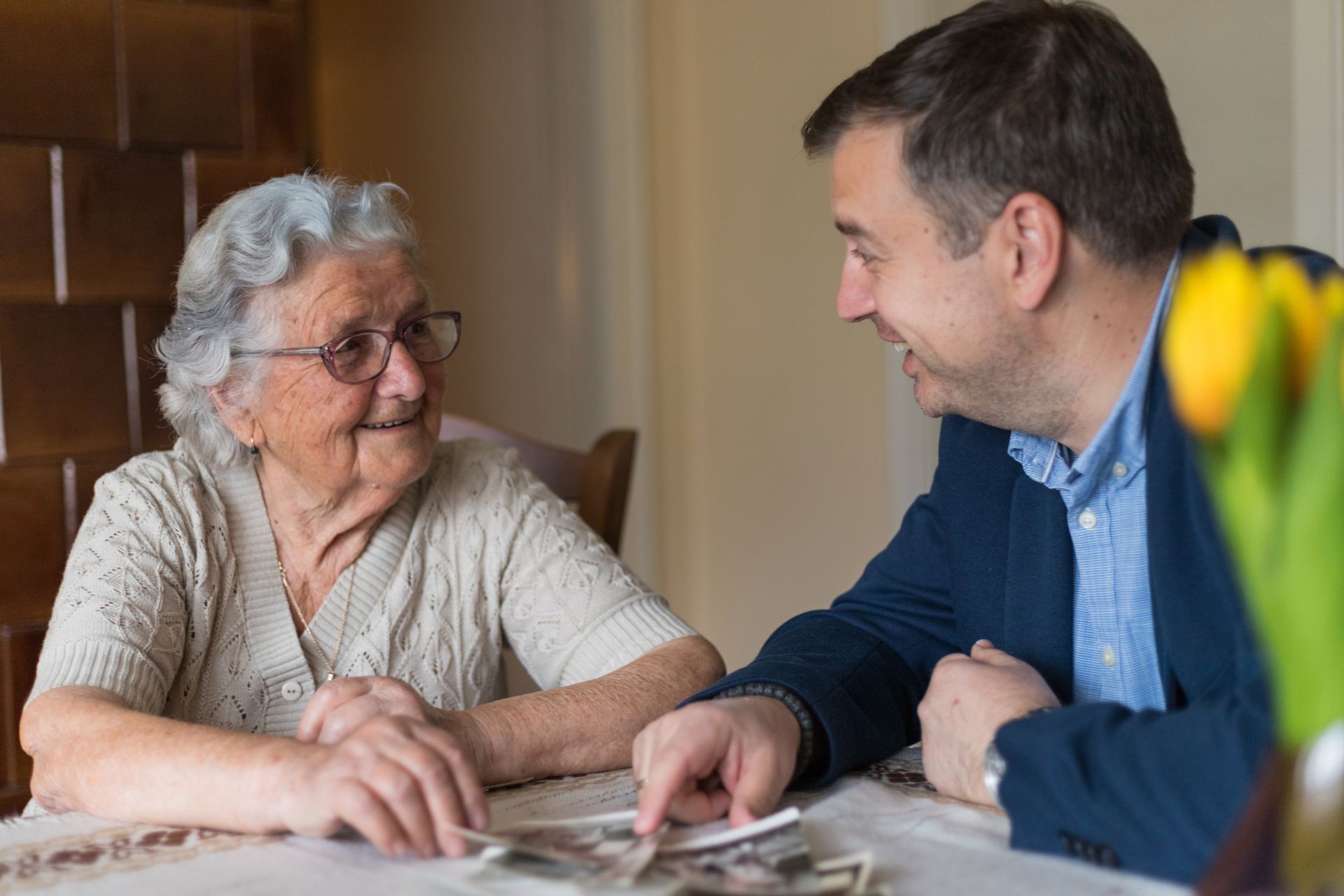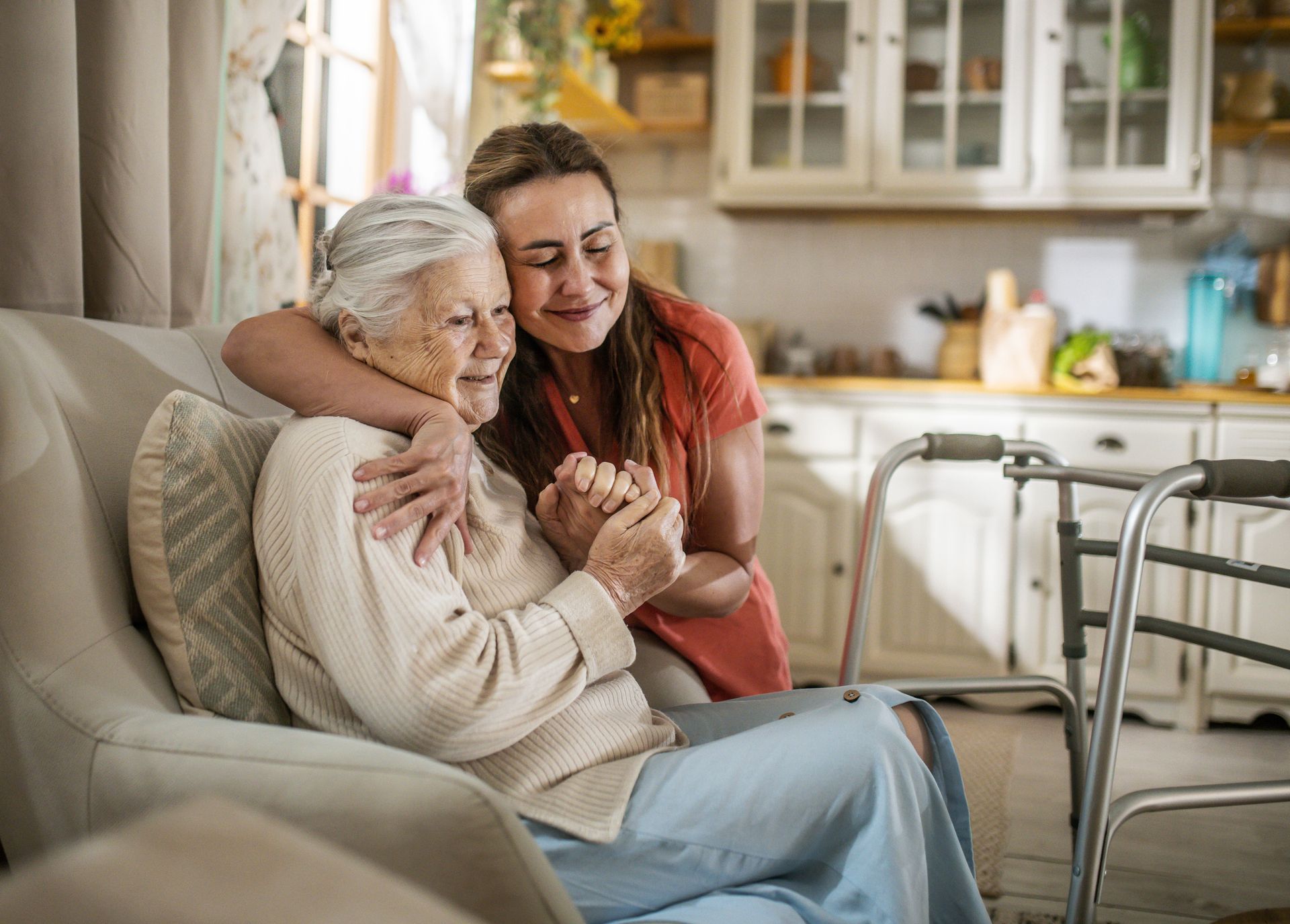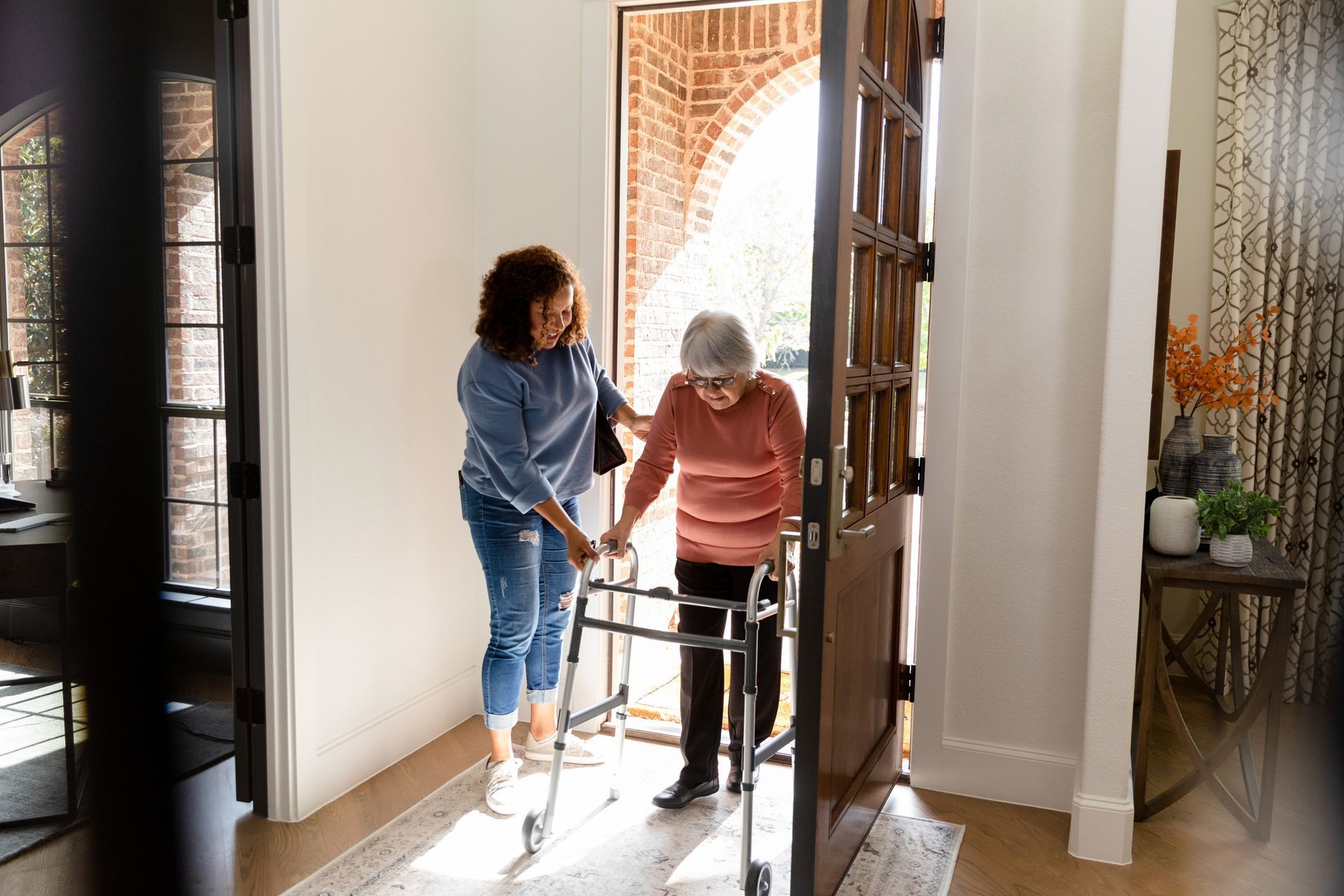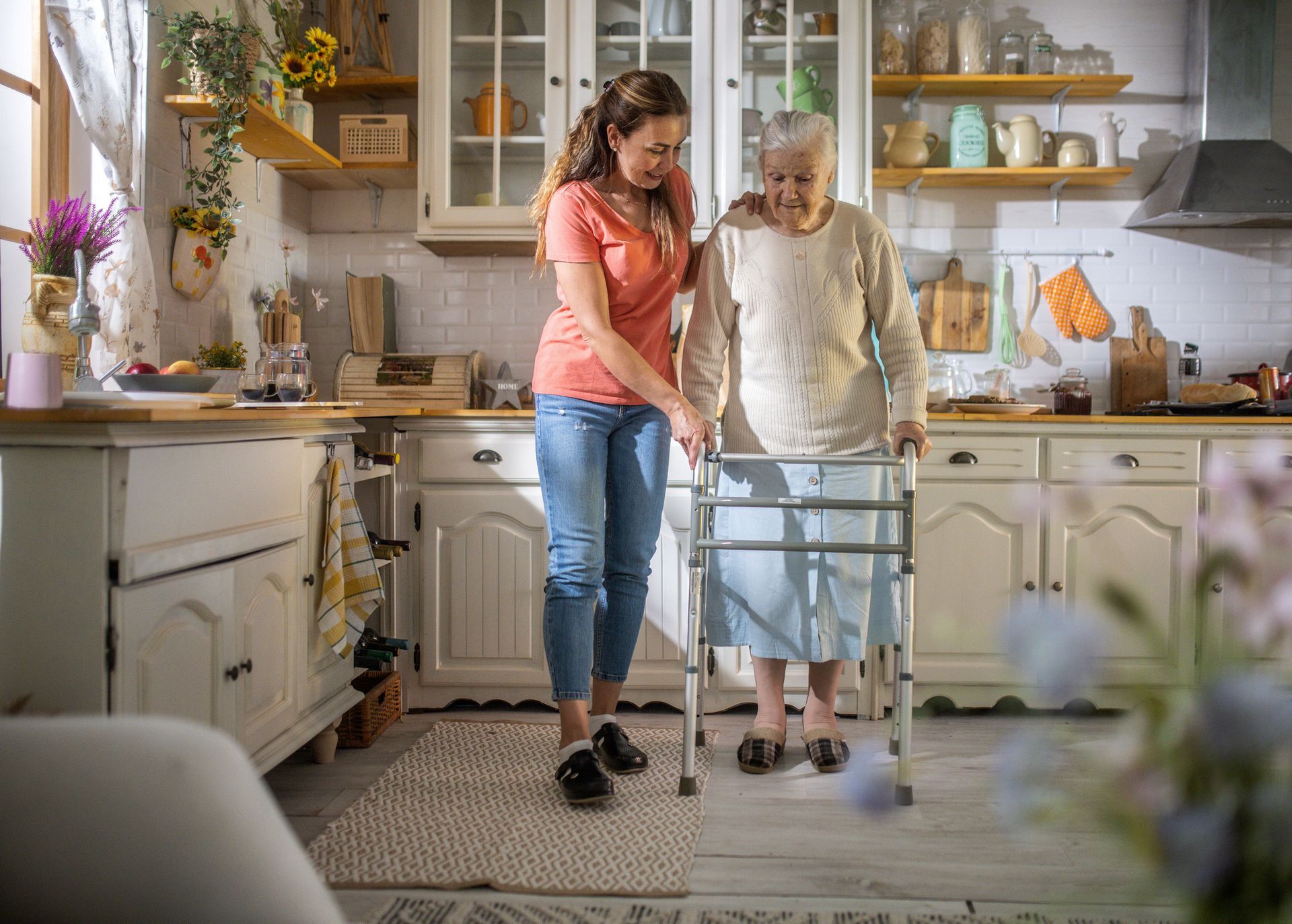Top Benefits of Companionship Care for Your Loved Ones
Is companionship care right for your loved one? Companionship care provides emotional support and social interaction for seniors and individuals with disabilities. It focuses on enhancing their well-being through engagement and daily assistance. In this article, we’ll explore the main benefits of companionship care and how it differs from other care types.
Key Takeaways
- Companionship care focuses on providing emotional support and social interaction for seniors, enhancing their quality of life and independence.
- Regular companionship helps reduce loneliness and isolation, promoting better mental health and overall well-being for older adults.
- Practically, companions assist with daily tasks like meal preparation and light housekeeping, helping seniors maintain a comfortable living environment.
Understanding Companionship Care
Companionship care is a specialized form of care services designed to provide emotional support, friendship, and social interaction for seniors and individuals with disabilities. Unlike home health aides or personal care aides who focus on medical or personal care, companions prioritize emotional and social well-being by engaging in meaningful activities and conversations. These activities can include:
- Playing games
- Reading
- Providing transportation to social events
- Light housekeeping
The philosophy behind companion care services is to enhance well-being through socialization and emotional support. Fostering meaningful relationships and engaging in interactive caregiving activities helps aging loved ones maintain their independence and improve their overall quality of life. The flexibility of companionship care allows for customized schedules that can vary from a few hours a week to several hours a day, depending on the individual’s needs.
Interactive CaregivingTM is a unique approach that emphasizes holistic care for the mind, body, spirit, and well-being of the care recipient. This method of caregiving ensures that companions provide not only practical support but also emotional enrichment through shared activities and tasks.
Adopting this approach, Androscoggin Valley Home Care Services aim to create a nurturing environment that promotes fulfillment and engagement for their clients.
What Does a Companion Do?
Companions play a crucial role in enriching the daily lives of older adults by engaging them in various activities and providing essential emotional and social support. These activities can include:
- Reading
- Play games
- Watching TV
- Going for walks All designed to keep the mind active and the spirit uplifted. Participating in these activities and engaging in meaningful conversations helps reduce feelings of loneliness and isolation that many seniors experience.
Beyond social activities, companions also provide practical support such as grocery shopping and helping loved ones stay connected with their community. This support not only ensures that seniors have their basic needs met but also contributes to their overall sense of well-being and fiercely independent living.
Through companionship services, older adults can enjoy a higher quality of life, enriched by regular social interaction with friends and emotional support.
Differences from Personal Care
While both companion care and personal care services aim to support the well-being of older adults, they differ in their focus and scope. Companion care emphasizes emotional support, social interaction, and assistance with daily home tasks such as light housekeeping and meal preparation. In contrast, personal care aides provide more hands-on assistance with activities of daily living (ADLs), including bathing, dressing, and medication management.
Companionship care is ideal for older adults who do not require extensive medical care but still need help with daily home tasks and social engagement. Offering a balance of emotional and practical support, companion care services ensure that seniors can maintain their independence and continue to live fulfilling lives in their own homes.

Emotional and Social Benefits
One of the most significant benefits of companionship care is its positive impact on the emotional and social well-being of older adults. Loneliness can have detrimental effects on both emotional and physical health, making social interaction a vital component of elder care. Companionship care helps older adults stay connected, engaged, and emotionally supported, which in turn enhances their overall quality of life.
Through regular social interactions facilitated by companions, seniors can build meaningful relationships and maintain their independence. Companions encourage participation in social events and activities, which fosters a sense of community and belonging. For families, knowing that their loved ones are receiving emotional support and social engagement provides peace of mind and reduces the burden on family caregivers.
Companions play a crucial role in promoting emotional well-being by providing consistent social interaction and companionship. This support helps seniors feel valued and connected, reducing the risk of social isolation and its associated health risks.
Reducing Loneliness and Isolation
Regular companionship can significantly decrease feelings of loneliness and isolation by providing opportunities for social engagement. For aging loved ones, having a companion to spend time with and share daily activities can make a world of difference. Personalized care plans that consider the specific social and emotional needs of older adults ensure that they receive tailored support that enriches their lives.
Companionship services offer a variety of activities designed to keep seniors engaged and socially active. Whether it’s attending social events, running errands, or simply having a conversation, companions provide the interaction and support needed to combat loneliness and enhance the overall well-being of aging loved ones.
Enhancing Mental Wellbeing
Companionship care not only addresses physical needs but also plays a crucial role in enhancing mental well-being. Regular social interaction and emotional support can improve mental health outcomes and reduce the risk of depression among older adults. Fostering meaningful relationships and providing a sense of purpose helps seniors feel valued and appreciated.
Engaging in stimulating activities with companions can also improve cognitive function and memory, reducing the risk of cognitive decline and dementia. Family members and other family members should make an effort to reach out to their aging loved ones regularly, as this additional support can further enhance their mental health and overall quality of life.
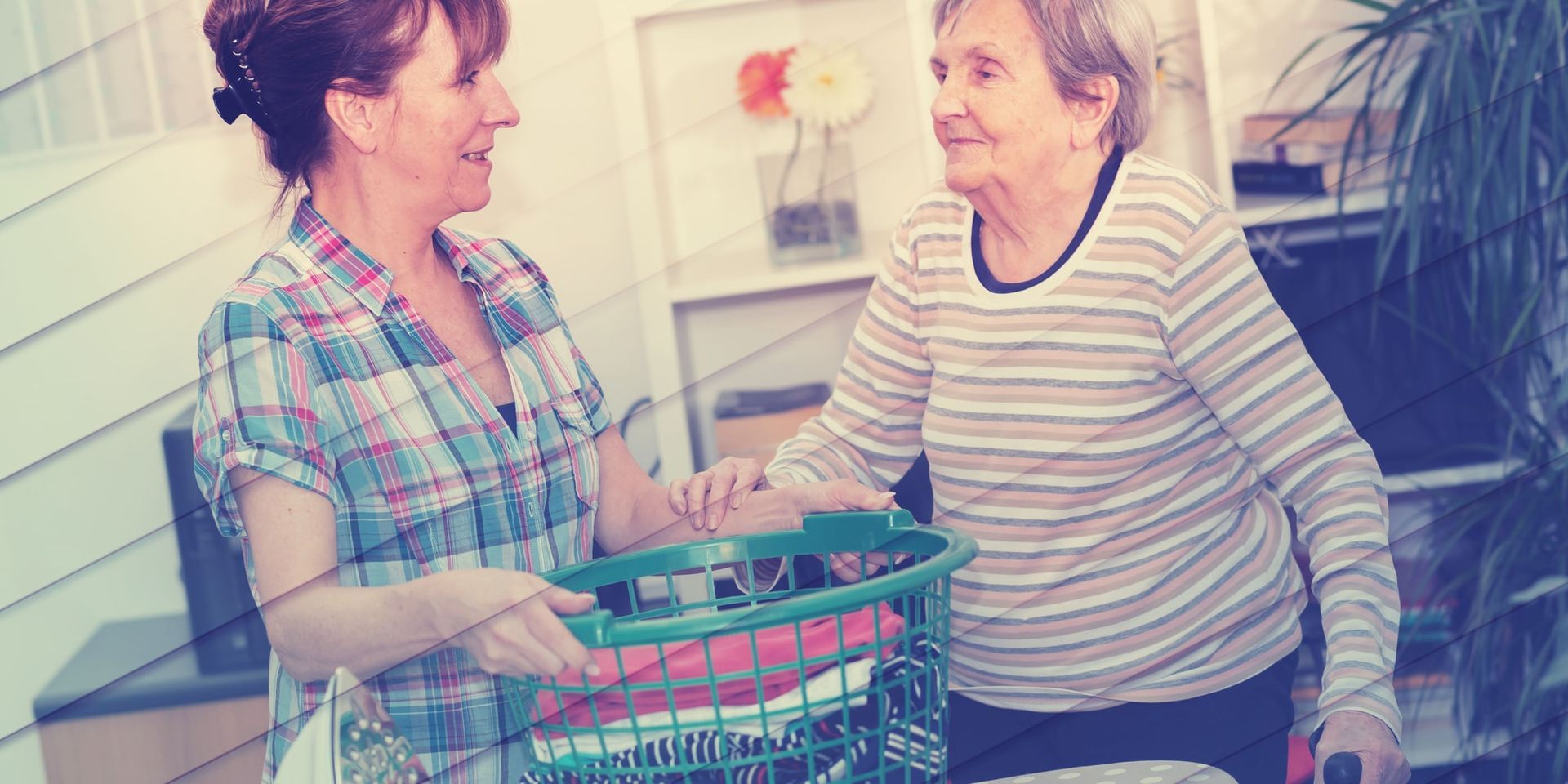
Practical Assistance Provided by Companions
In addition to emotional and social support, companions provide practical assistance with daily living tasks. This support can include:
- Help with errands
- Meal preparation
- Light housekeeping
- Transportation to appointments
Assisting with these essential activities helps older adults remain independent and improve their overall quality of life.
Companions also play a vital role in ensuring a clean and organized living environment, which is crucial for both physical and emotional well-being. Regular visits from companions can prevent the onset of depression and contribute to a higher quality of life for seniors.
Help with Daily Living Tasks
Companions provide valuable assistance with daily living tasks, ensuring that seniors have the support they need to maintain their independence. This assistance can include meal preparation, grocery shopping, and planning medical appointments. Ensuring that older adults have nutritious meals and can attend their appointments plays a crucial role in promoting overall well-being.
Companionship care also involves providing medication reminders and helping with other essential daily tasks. This support helps seniors manage their health and maintain a routine, which is vital for their physical and emotional well-being, including their medications.
Light Housekeeping and Homemaker Services
Maintaining a clean and organized living environment is essential for the well-being of older adults. Companions provide light housekeeping services, such as cleaning, tidying up, and doing laundry, to ensure that seniors can live comfortably in their own homes. These services are crucial for preserving a comfortable and safe living space.
Assisting with light housekeeping and homemaker services helps maintain cleanliness and contributes to the emotional and physical health of seniors. A clean house environment can significantly enhance the overall quality of life and well-being of aging loved ones.
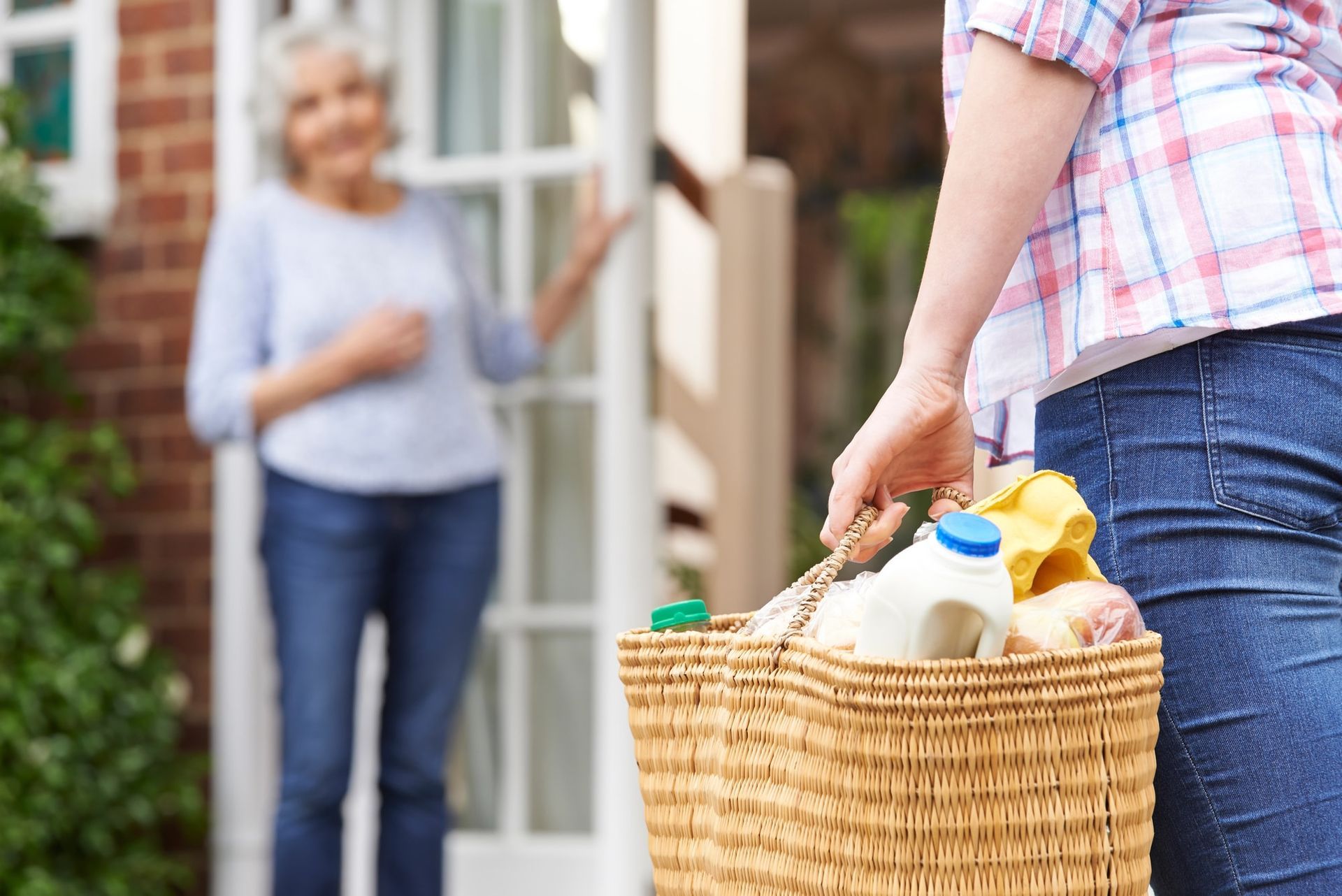
How to Determine If Your Loved One Needs Companionship Care
Assessing the need for companionship care is a vital step in ensuring that aging loved ones receive the support they need. Common signs that an elder may require companionship include:
- Comments about feeling lonely
- Difficulty managing household chores
- Increased isolation Recognizing these signs allows families to take proactive steps to provide the necessary care and support.
A thorough assessment of your loved one’s physical, emotional, and social needs is essential to determine the necessity of companionship services. This assessment helps identify areas where additional support is needed and ensures that the care provided is tailored to the individual’s specific needs.
Signs Your Loved One May Need Help
Expressions of loneliness or sadness can be crucial indicators that an older adult is in need of companionship services. Other signs include difficulty engaging with daily activities, increased isolation due to lack of transportation, and challenges in managing household tasks. Recognizing these signs early on can help ensure that your loved one receives the emotional and social support they need.
A thorough assessment of your loved one’s needs should consider their physical, emotional, and social well-being. This comprehensive evaluation helps determine the most appropriate care services and ensures that your loved one receives the support they require to maintain their independence and quality of life.
Creating a Personalized Care Plan
Creating a personalized care plan is essential to address the specific needs and preferences of the elderly individual. Involving your loved one in the creation of their care plan fosters trust and ensures that their routines and preferences are respected. This collaborative approach helps build a care plan that is both effective and comforting for the senior.
Regularly reviewing and adjusting the care plan is important to accommodate any changes in your loved one’s health or personal circumstances. Partnering with agencies that specialize in developing and adjusting personalized care plans can provide valuable support in ensuring that the care provided is always aligned with the individual’s needs.
Choosing the Right Companion for Your Loved One
Choosing the right companion for your loved one is a crucial step in ensuring they receive the best possible care. The process involves thorough vetting and hiring to ensure the companion meets your loved one’s needs and preferences, as well as the needs of the person.
Partnering with reputable home care agencies can simplify this process by providing access to pre-screened, trained professionals.
Vetting and Hiring Tips
When interviewing potential companions, it’s important to:
- Ask about their experience, references, and specific skills that match your loved one’s requirements.
- Conduct thorough background checks, especially if the caregiver will be responsible for transportation or other sensitive tasks.
- Check references and hold a trial period to help ensure the caregiver is reliable and a good fit for your loved one.
Asking behavioral questions during interviews can also provide insights into how the caregiver will handle various situations and interact with your loved one. This careful vetting process helps ensure that your loved one receives high-quality, compassionate care.
Partnering with Professional Agencies
Partnering with professional home care agencies offers several advantages, including access to a pool of vetted caregivers and ongoing training for their staff. Although using an agency can be more expensive than hiring independent caregivers, the peace of mind that comes with regulatory compliance and professional oversight is invaluable.
Reputable agencies, such as Androscoggin Valley Home Care Services, provide a layer of security by handling background checks and verifying caregiver qualifications. This partnership ensures that your loved one receives reliable and high-quality companionship services, tailored to their specific needs.
Summary
Companionship care offers a wealth of benefits for aging loved ones, from reducing loneliness and enhancing mental well-being to providing essential practical support. By understanding the scope of companionship care services and recognizing the signs that indicate a need for such care, families can take proactive steps to improve their loved one’s quality of life.
Choosing the right companion and exploring financial assistance options are essential components of the care planning process. By partnering with reputable home care agencies and thoroughly vetting potential companions, families can ensure their loved ones receive compassionate, personalized care that meets their unique needs. Embrace the opportunity to enrich your loved one’s life with the support and companionship they deserve.
Frequently Asked Questions
What type of care does Androscoggin Valley Home Care Services provide?
Androscoggin Valley Home Care Services offers compassionate, personalized in-home care tailored to individual needs. It's about supporting you or your loved ones in a comfortable and familiar environment.
What services are included in their comprehensive home care offerings?
Their comprehensive home care offerings include Nursing & Case Management, Personal Care Assistance, Homemaking Services, Companionship & Respite Care, and Private Duty Services. So, you can find all the support you need under one roof!
What specific tasks are included in Personal Care Assistance?
Personal Care Assistance includes tasks like bathing, grooming, dressing, helping with mobility, toileting, and transferring. These services ensure that individuals can maintain their dignity and comfort in daily activities.
What is the purpose of the companionship and respite care services?
Companionship and respite care services are designed to support family caregivers by offering social engagement and improving emotional well-being. They help lighten the load for caregivers while ensuring loved ones receive the attention they need.
With which organizations does Androscoggin Valley Home Care Services partner?
Androscoggin Valley Home Care Services partners with the Androscoggin Valley Chamber of Commerce, North Country Health Consortium, and the Veteran’s Administration. These collaborations help them provide better services to the community.




